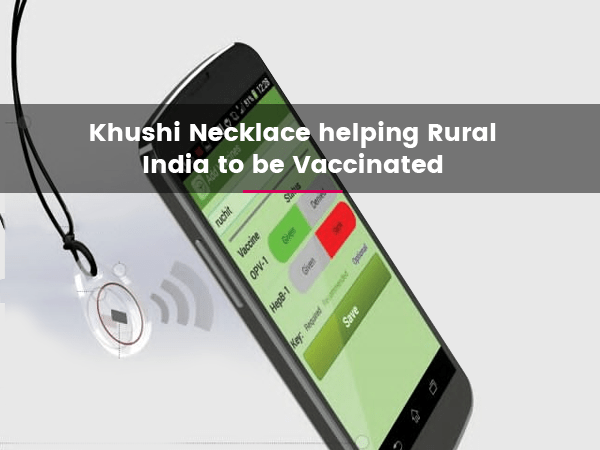Imagine an immunization camp in rural Rajasthan. A new mother walks in with her daughter who is not even a year old. She had come in for the previous immunization camp as well but, this time, she does not have the medical card she received three months ago. The card had her baby’s vaccination details but it is now lost. The health worker has no clue about the vaccines the child has or has not received. She has a standard Reproductive Child Health (RCH) register but finding relevant information in it is a cumbersome task. The child is now left with an uncertain health plan and helpless caretakers. Vaccination gaps caused by data loss are a reality in many villages across India. The country has one of the lowest vaccination rates in the world, at under 60%, which is way below the 90% target set by WHO. Many mothers don’t understand the importance of vaccines and often forget about the camps.
An innovative idea has turned the black thread worn by many newborn babies in Rajasthan into an effective tool to track and record their immunization details. It is called Khushi Baby Project and this is how it works. This technology is meant to record and track immunization data of newborn babies across the country by digitizing the information at the point of care. The Khushi Baby Project (KB) system is a combination of a black thread, a waterproof plastic pendant with a near field communication (NFC) chip, and a mobile app.
The health worker or Auxiliary Nurse Midwife (ANM) assigns a new necklace to every baby on the first visit to a vaccination camp. She then uses an NFC-enabled smartphone or tablet with the KB app to scan the necklace and register the baby by entering details like name, father’s name, mother’s name, date of birth, etc. She also enters the details of the vaccines the child has received so far. The health worker scans the necklace once again after entering the details so that the updated data is available to the parents as well.
The same procedure is adopted at the next immunization camp where a health worker can scan the necklace and learn all about the child’s vaccination history with the help of the app. Currently, the app has Hindi and English language options.
When the health workers go back to the block office or any place that has Internet connectivity, they upload the data on a cloud-based dashboard. The Ministry of Health and other health officials can use that data to generate reports, view patient-specific information, see which vaccines were not given and why, etc. This information can help them work on improving the system. The dashboard sends out voice calls to mothers’ cell phones too. These calls are in local dialects. They carry educational messages about different vaccines and their importance. The calls also remind mothers about the next vaccination camp.
People in many parts of India believe that the black thread protects children from the evil eye. In this way, the idea of Khushi Baby turned out to be a natural fit with the traditions and customs of the people.
The Khushi Baby Project started in a classroom at Yale University. The founder, Ruchit Nagar, was part of a class focused on creating new designs and technologies for the developing world to address the vaccination gap. The team has just finished one of the trials for the necklace in Udaipur, with a small group of 214 women. Additionally, they have rolled out the Khushi Baby system to 96 camps in northern India







,